About the Event
- Disrupted marine ecosystem caused by climate change inspires Hongkonger Vriko Yu, CEO of archiREEF, to become one of budding women entrepreneurs in I&T
- EPiC celebrates diversity as more than 600 entries from 40 regions pitch greentech and construction tech, health tech, smart city and fintech ideas to investors
The innovation and technology (I&T) sector has traditionally been dominated by men, but the situation is changing.
Scuba-diving enthusiast Vriko Yu, CEO of archiREEF, was inspired to launch her start-up after seeing the devastating impact climate change was having on marine life, making her one of a growing number of women who are working in the I&T field.
“When I realised that coral reefs can disappear within just two months, and I witnessed that in person, I was really shocked,” says the Hongkonger, 29, who is currently studying ecology and biodiversity as part of her doctorate at the University of Hong Kong (HKU).
The experience led her to co-found archiREEF, a University of Hong Kong spin-off which restores degraded marine ecosystems. In November, the start-up was crowned the overall champion at Hong Kong’s Elevator Pitch Competition (EPiC) 2021, a tech start-up challenge organised by Hong Kong Science and Technology Parks Corporation (HKSTP), which attracts hundreds of global entrepreneurs across different disciplines.

“We are living in a very interesting era where technologies are being explored every day,” Yu says. “When it comes to ecosystem restoration it is not only about 3D printing, it’s also about the Internet of Things [the connection of devices within everyday objects via the internet, which enables them to share data] and artificial intelligence,” she says.
“Coming to an event like this gives us the opportunity to learn about what is happening in other fields and how we can adopt these technologies to reach our goal.”
The number of women filing patents has been on a steady upwards trajectory in recent years.
According to the World Intellectual Property Organisation (WIPO), women accounted for 16.5 per cent of inventors named in international patent applications last year, with Asia showing the highest level of women’s participation as a region. However, this figure represented only a 3.8 per cent increase over the previous decade.
Albert Wong, CEO of HKSTP, says: “We are seeing more and more diversity among entrepreneurs, from overseas, locally, women and even youngsters. I think we need this diversity and participation from all walks of life in Hong Kong.”
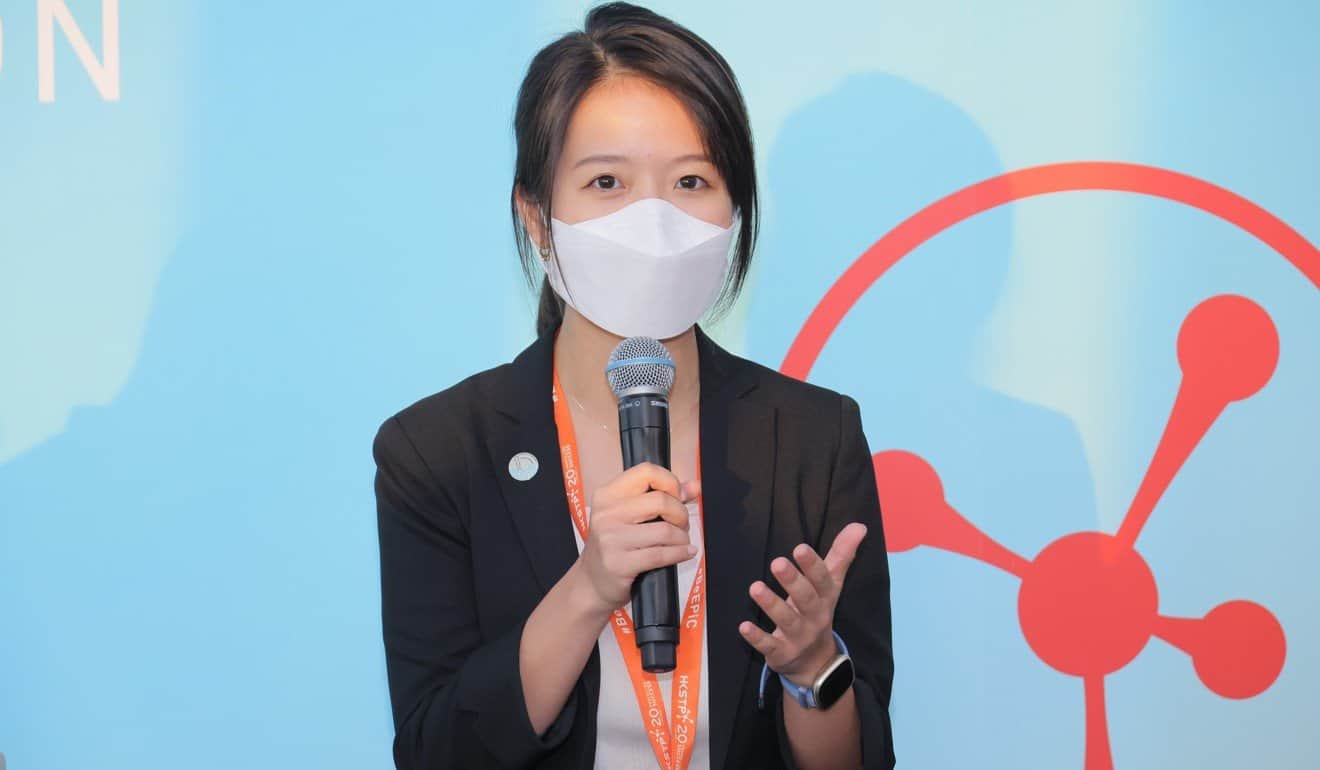
To inspire the participants, Hong Kong cyclist Sarah Lee Wai-sze, the winner of two Olympic bronze medals, was invited to EPiC as a guest. She recommends that women who are pursuing entrepreneurial goals should keep their passion alive, remain confident and never stop believing in their dream.
She says entrepreneurs, like athletes, must work hard to overcome challenges, and “both need commitment, patience and perseverance to achieve their goals”.
EPiC, an international challenge now in its sixth year, celebrates this diversity. This year’s contest, held on November 5, was the first to use a hybrid format to enable overseas companies to join the event virtually. It attracted entries from more than 600 tech start-ups from 40 countries and cities across five continents, with more than 60 per cent from overseas.
The competition provides a platform for entrepreneurs to showcase their ideas by presenting their innovative business proposals in 60 seconds – the time it takes to ride the lift to the top of the 490-metre (1,607-foot) International Commerce Centre, Hong Kong’s tallest skyscraper.
The contest was open to entrepreneurs working in four sectors – fintech, health technology, greentech and construction tech, and smart city – with the winners sharing prize money totalling US$200,000.
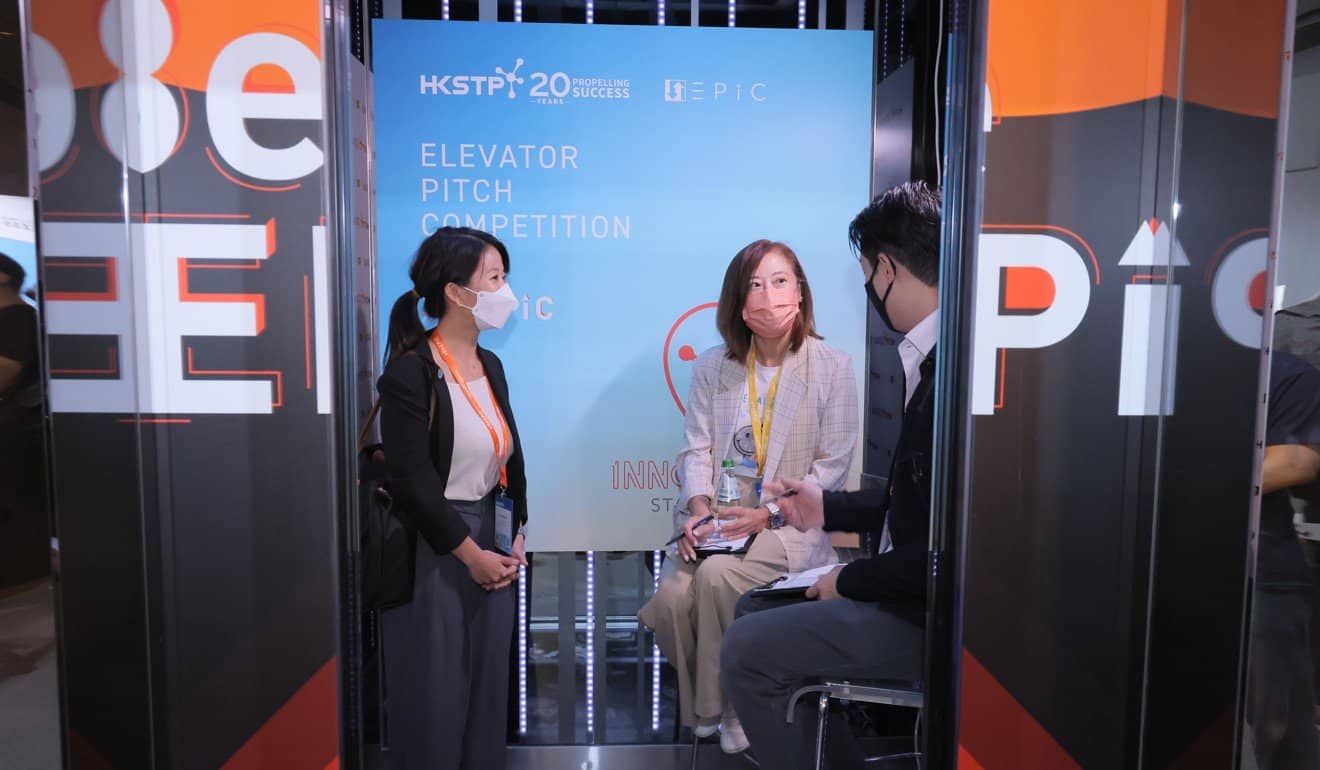
Yu, whose start-up also won the greentech & construction tech competition and “My Favourite Pitch” at EPiC 2021, says the challenge of distilling her business proposal into a 60-second pitch was part of the appeal of the competition.
Her innovative and complex idea was developed from research work into marine degradation she carried out as a summer intern during her undergraduate studies at the Chinese University of Hong Kong. She went on to found archiREEF with David Baker, her PhD supervisor at HKU.
The start-up uses 3D printing to create artificial reef structures, the design of which is based on an algorithm developed by Yu and her team. The tiles integrate biomimicry – the design and production of materials and structures modelled on biological entities and processes – to enhance coral growth.
The structures are printed using clay, which then needs to be dried and fired to turn it into terracotta. Yu says archiREEF uses clay as it is a natural material and does not leak toxic chemicals into the ocean. But because clay is difficult to handle, the start-up has had to employ artists and designers who are used to working with it.
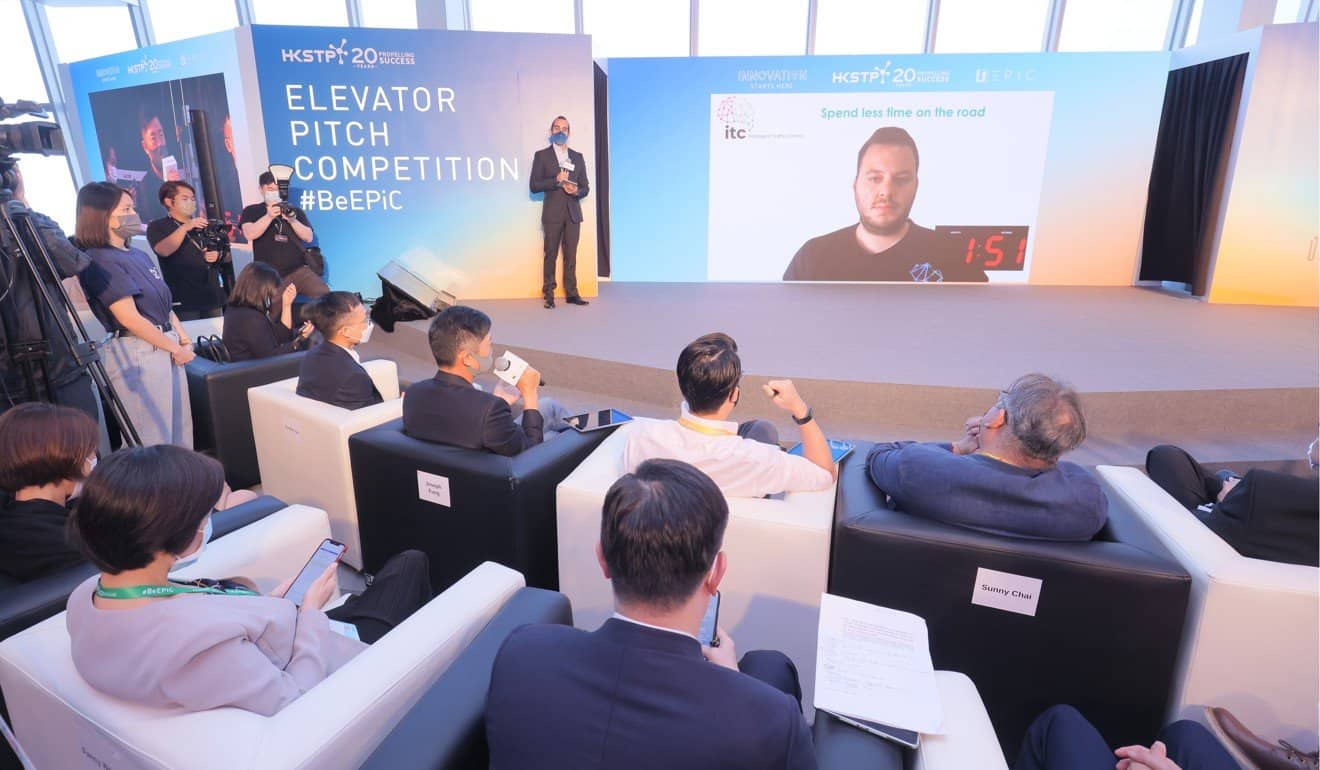
The tiles, which have been used to establish a 40 square metre (430 square foot) reef, off the coast of Hong Kong, are four times more effective at keeping coral alive than conventional restoration methods, she says.
The innovative solution has caught the attention of international media and was also highlighted by the World Economic Forum as a way to help save coral reefs.
“All entrepreneurs face lots of challenges in their journeys, regardless of their gender,” Yu says, adding that she has been lucky to receive great support and guidance from many mentors.
One key moment in her business journey came when archiREEF was accepted onto HKSTP’s Ideation programme, a one-year support scheme which helps entrepreneurs kick-start their business ventures.
“Putting conservation into a business setting is unique and challenging as there is no model that we can replicate and bring to market,” she says, adding that the support and mentorship provided by HKSTP’s Science Park has proved critical to the development of her start-up.
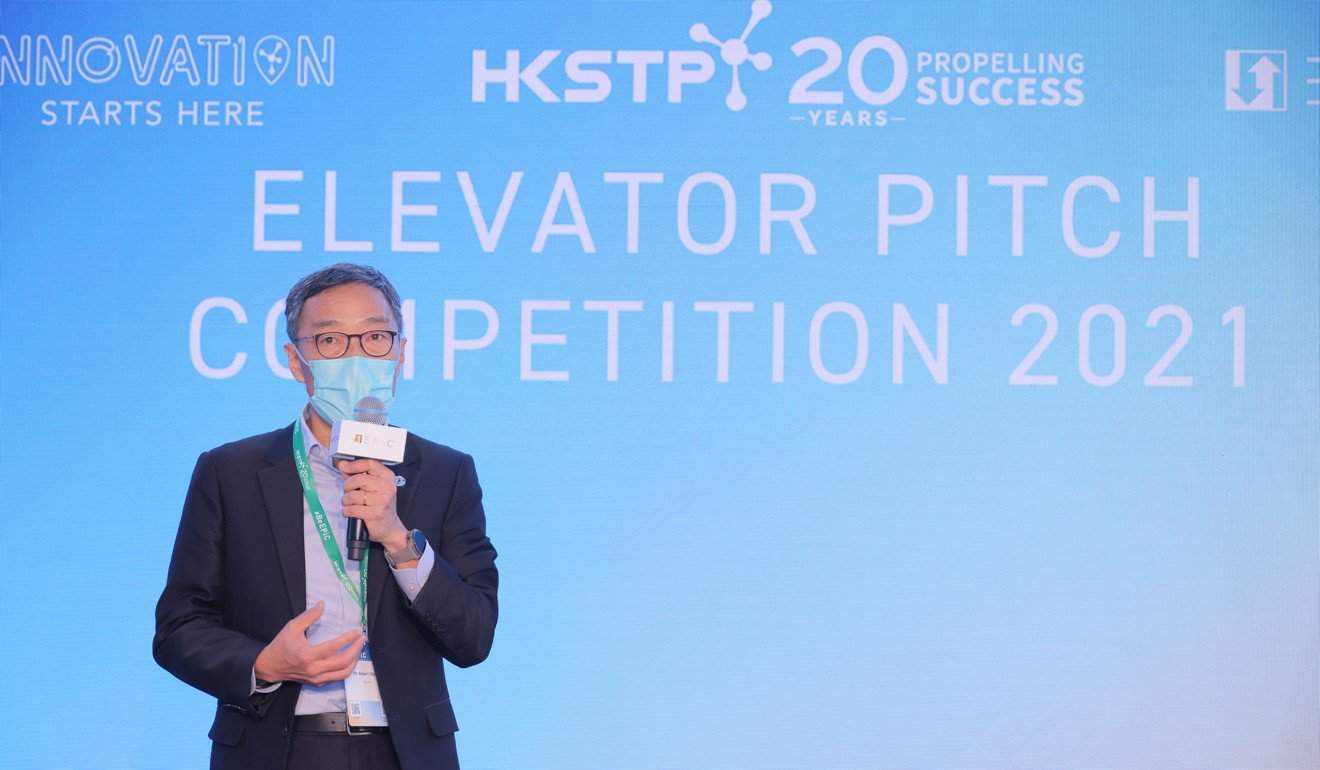
HKSTP has been offering expertise and all-round support to ease the expansion of innovation and technology start-ups and enterprises in the city and across the region for nearly 20 years.
Wong says: “There are a lot of challenges from ideation to commercialisation and Science Park is here to provide start-ups with mentorship, partnership and help them get through all of these challenges.”
Like many start-ups, Yu and her team have faced the challenge of securing funding. She says one of the reasons she took part in EPiC was so that archiREEF would be seen by potential investors.
“I think the most valuable [part] of EPiC is beyond the [winner’s] cheque; it is really about the connections and the opportunity that we’re given on the stage,” she says.
“After the pitching we had 20 people reach out to us and express an interest in us.”
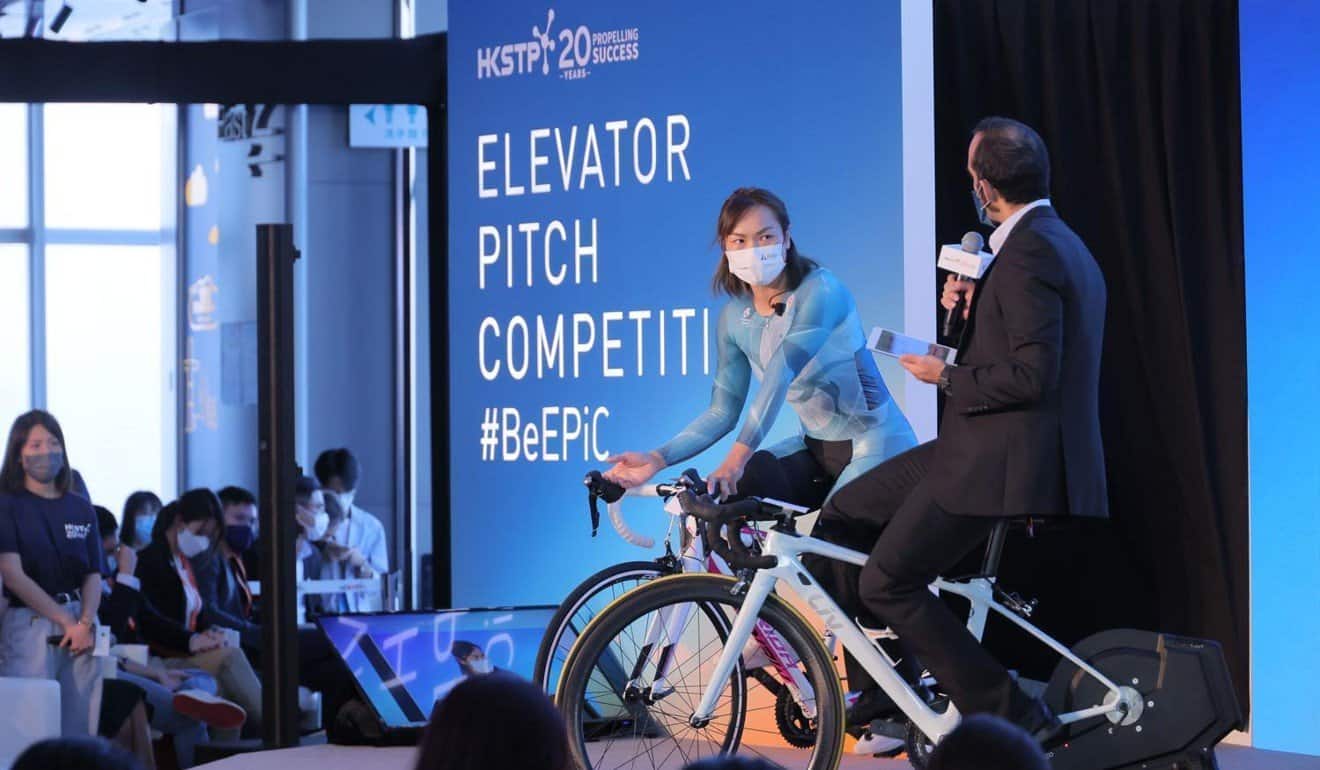
Alongside the pitching contest, the week-long event included Investment and Business Matching and an Investment Conference.
Wong says HKSTP organises many events, competitions and hackathons to introduce start-ups to the investment community. “We believe investors are the ones who help start-ups grow,” he says. “One of the most important things we do is helping to make investment happen.”
Wong says he is optimistic about the future for start-ups based in Hong Kong. “With the government policy, the investment community and the market that is around us, Hong Kong has an opportunity to become the international innovation and technology hub of the world,” he says.

